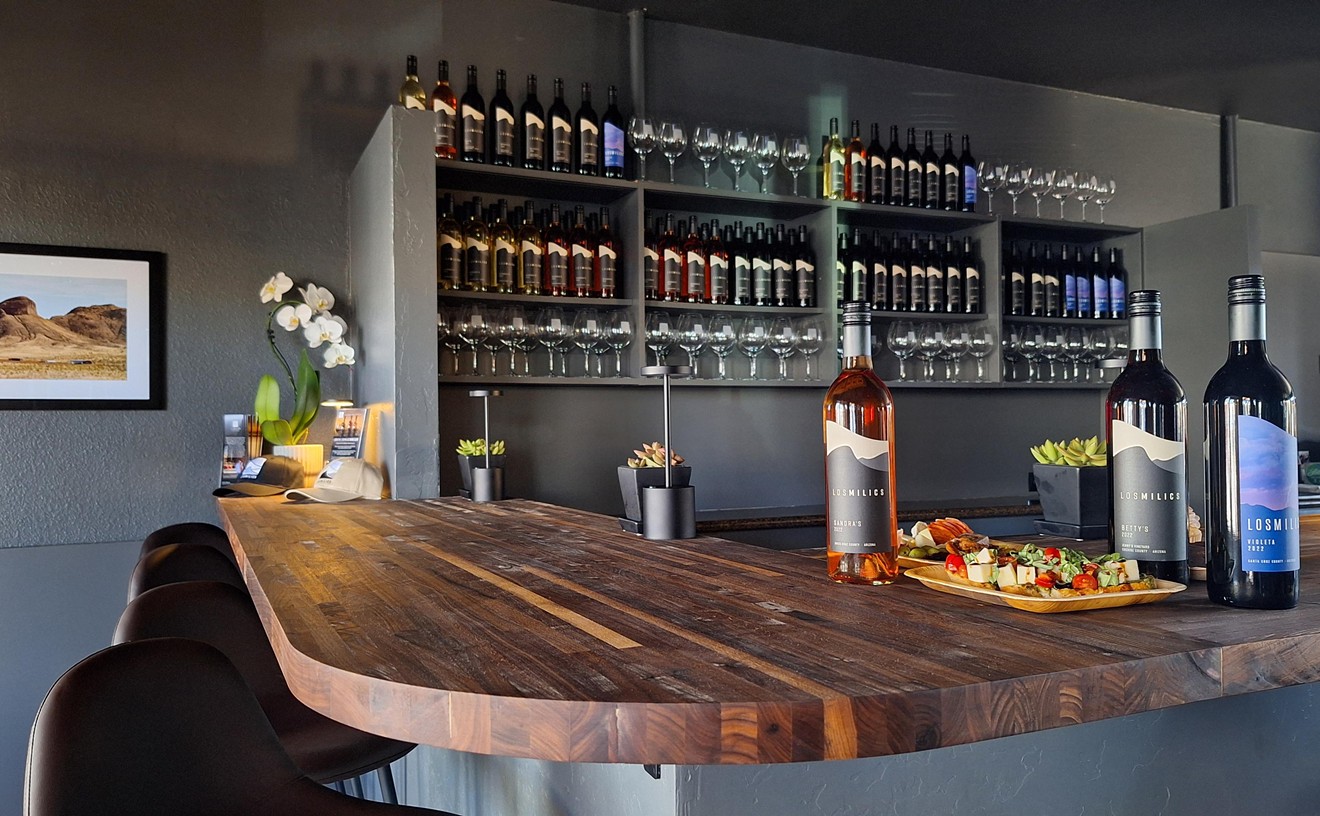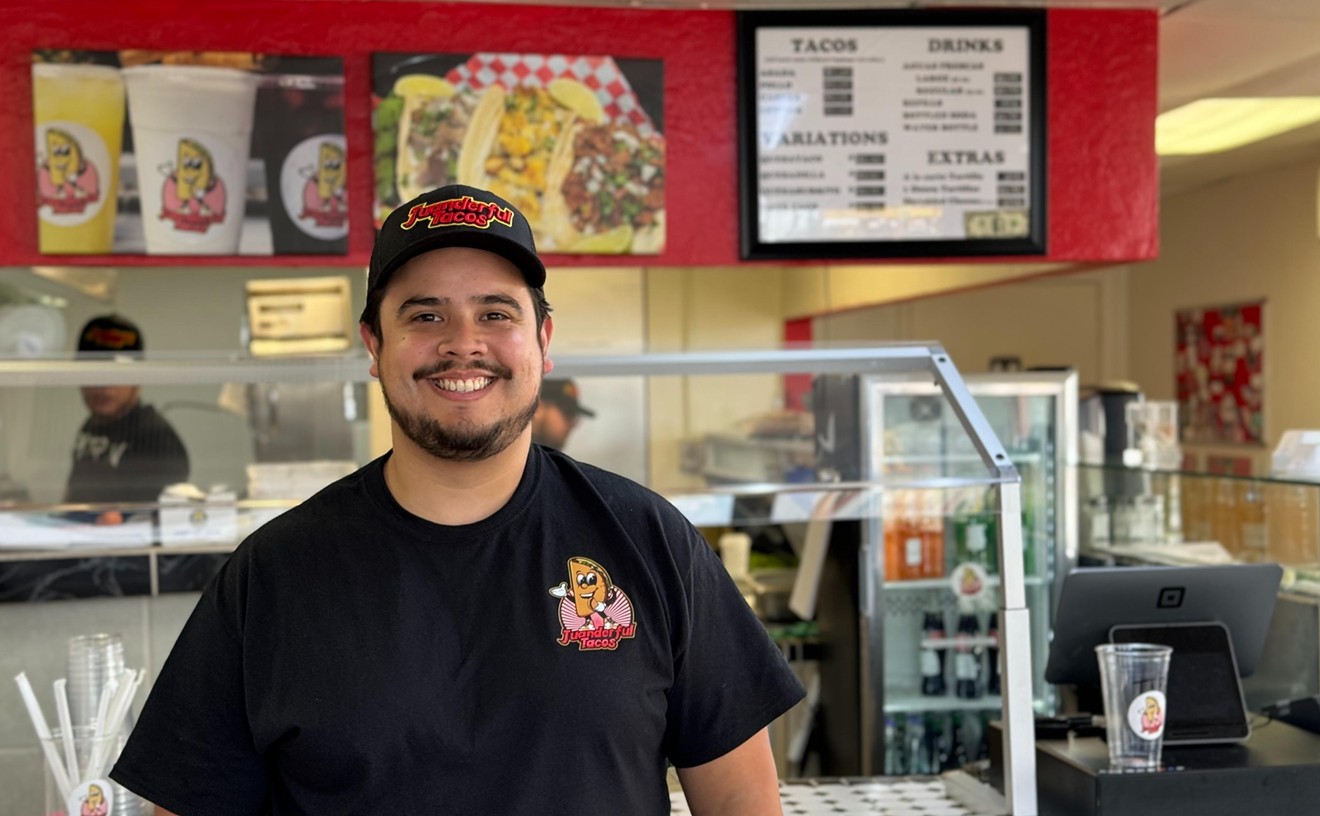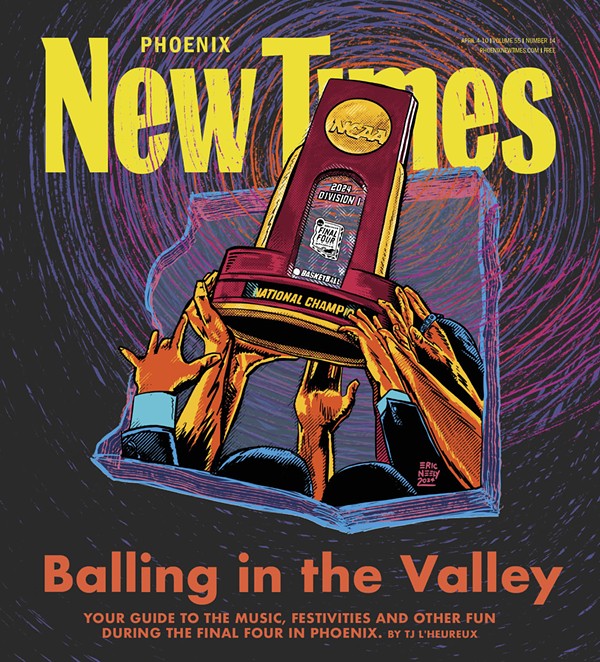It's no big secret that tequila isn't tequila unless it's made in Jalisco, Mexico. Like Champagne and sparking wine, there's tequila and there are agave spirits. I'm tempted to wax poetic and go full bard status here, so there are some things you should know about just what is in the name tequila and whether it really is any sweeter than its U.S.-made agave spirit brethren.
See also: How to Make Bourbon with Arizona Distilling Co.
To say tequila is a political issue is a massive understatement. Everything from its production to its designation to its marketing can trigger heated debate, so here's what you need to know. Tequila is the heritage name (like Champagne) of a distilled spirit made from Jalisco-grown blue agave and produced in Jalisco. There also are some limited areas in parts of the states surrounding Jalisco (Michoacán, Guanajuato, Nayarit, and Tamaulipas) where agave can be harvested and legally labeled as tequila, but it is restrictive and it still must be produced in Jalisco.
Those things have to be the case, according to the Mexican government's guidelines, in order for it to be called tequila. All else are agave spirits, unless of course it's mezcal, which is processed differently and can be harvested from a broader geographical area (seven states) than tequila.
However, whiskey fans probably already know what I'm about to say next. Think of Jalisco like Kentucky and agave spirits like bourbon -- sure, some have the exclusive affinity for Kentucky bourbon, but that doesn't mean bourbon made outside Kentucky can't also be tasty.
In the quest for U.S. distilleries to begin producing tequila-like agave spirits, take note of St. George Spirits' Agua Azul project in 2007. Master distiller and proprietor Lance Winters says the quest to make an agave spirit to their standards then was a long and exhausting trip involving convincing Mexican authorities to allow them to buy Jalisco-grown agave, partially processing it before it got to the border so it was copasetic on the U.S. government's side, and then another four or five days of further processing it so it would be ready for fermentation.
From 40,000 pounds of agave, Winters and his team yielded 470 gallons high-proof agave spirit called Agua Azul.
"It was lovely. It was wonderful, but by the time we were done we were so emotionally, psychologically, and physiologically beat up that it wasn't the type of thing we wanted to turn around and do again immediately," he says.
Some Arizona-based tequila makers, like Roger Clyne's Mexican Moonshine, 3 Amigos, and Luna Malvada, produce their tequila in Jalisco and then import it to the United States. Cruz Tequila is produced in the highlands of Jalisco by three Arizona State University grads. Their tequila has won honors in the San Francisco World Spirits Competition in the past.
However, producing in the U.S. is certainly another beast, and one which the Arizona Distilling Company is looking to undertake in the near future. Although owner Rodney Hu says they are still figuring out where the agave they use will come from, it will definitely be distilled in Tempe, which will be a feat in itself.
Lance Winters of St. George Spirits says that the number one lesson they learned from their foray into agave spirits seven years ago is that, next time, they will source agave within the U.S. and plan on pit-roasting the plant, similar to how mezcal is prepared for fermentation. In doing so, he hopes to use regional agave varieties and, therefore, a "diversity of flavors," rather than sticking to the blue agave used in tequila.
"I think tequila had a much better marketing team than mezcal," Winters says. "To say that the blue agave is the noblest of the agaves and the only one that should be used is sort of a crock of shit."
Interestingly, this also will begin the process of testing a 100 percent U.S. agave spirit's terroir. Like wine and scotch, agave produced in highland and lowland regions have different characteristics, with the former typically being sweeter and fruitier and the latter being earthier and spicier.
For producers in Arizona, there are plenty of varieties of agave native to the state, and still more do well in the region, including the Weber Blue Agave used in tequila production. It will be exciting to see what an all-Arizona agave spirit will be like, but, with agave plants taking anywhere from seven years to a couple decades to mature, it will probably be a while before this ever becomes more mainstream -- especially mainstream enough for people to really be able to start judging terroir differences.
"It's a long-term investment for a farmer and a large equipment investment for a distiller," Winters says of the specialized, rare equipment used to produce agave spirits that aren't pit-roasted.
Until distillers begin using U.S. grown agave in their spirits, though, Winters says, there really won't be much difference between the U.S. agave spirits and Mexico's tequila.
"There's not a whole lot of reason for a brunch of gringos in California to be making something that we can't even call tequila in California from Mexican ingredients," he says. "If there's going to be validity to our approach in this at all, we're going to get it from using locally grown [agave] and using methodologies that no one in Jalisco is going to do."
In terms of that name -- tequila, he says, doesn't need his agave spirit to be called tequila, even if it hypothetically could be through a legal loophole.
"I would much rather get to the point where the consumer doesn't give a rat's ass about what it's called. They care more about what it smells and tastes like," Winters says.











